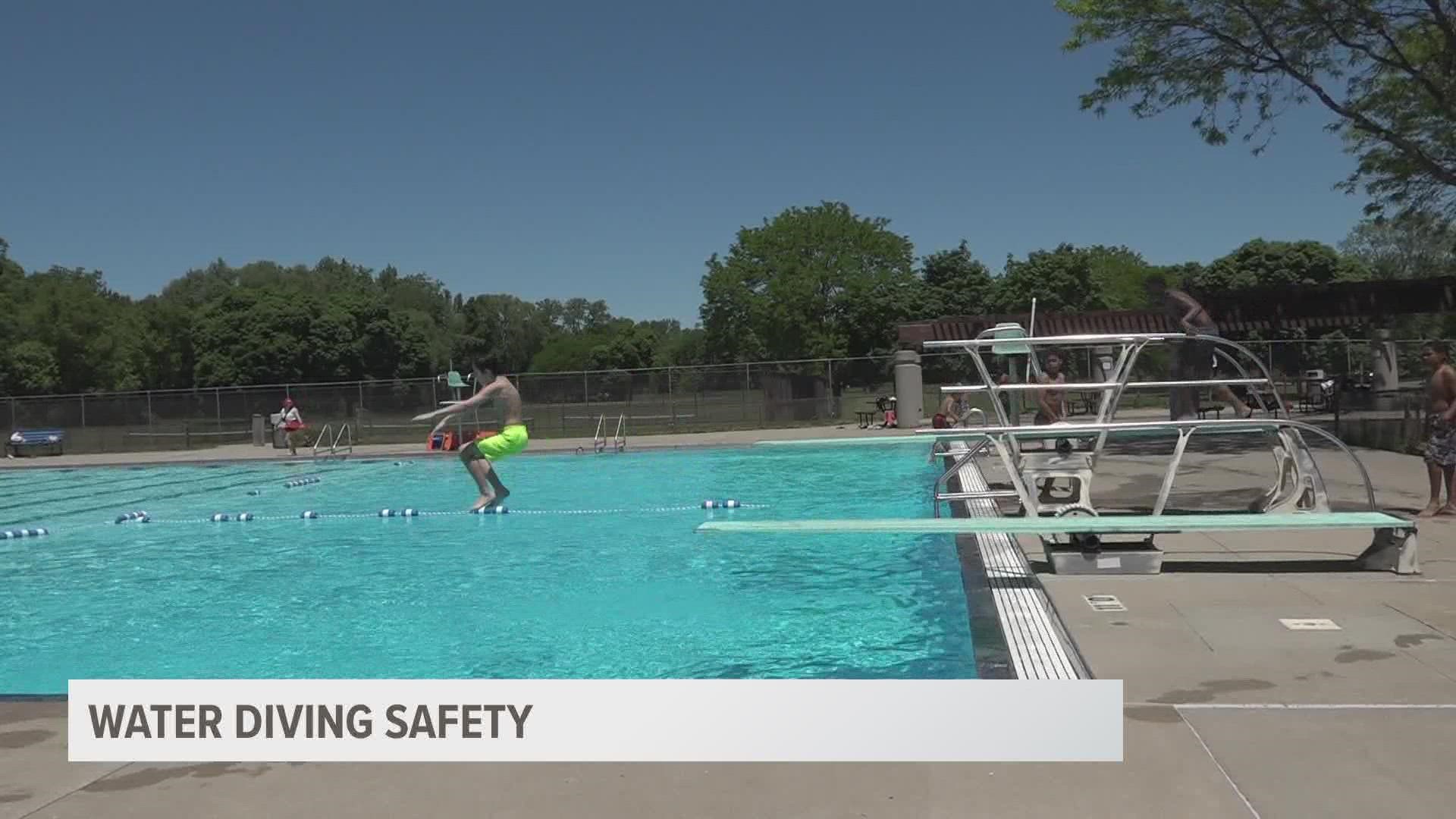MICHIGAN, USA — Enjoying a day at the lake or pool is a summertime staple of Michigan. While safety is stressed when swimming in the water, how we enter the water is less talked about.
“The key is always going in feet first,” says Dr. Jonathan VandenBerg.
Diving headfirst into the water brings a larger risk of serious injury, primarily focused on the spinal cord. Mary Free Bed Rehabilitation of Grand Rapids is stressing this part of water safety as the summer season begins.
“The main message we want to send is don’t dive headfirst,” Dr. VandenBerg said. “The other message is this is a team effort. You got to encourage your family, your friends, and anybody who you meet on the water or around the pool to not dive headfirst.”
Here are a few facts of diving and spinal cord injuries:
- Diving is the fifth leading cause of spinal cord injuries.
- A majority of accidents occur between May through August.
- Men make up roughly 85% of diving injuries.
- 76% of injuries occur to those under 29 years old, with 29% of injuries occurring to those under 18 years old.
“The damage to the spinal cord happens when the vertebra or the bones of the spine kind of collapse and compress the nerves that are coming down from your brain. That's how you move, that's how you feel,” Dr. VandenBerg explains. “So when you hit the bottom of the pool, it's your full body weight and people enter the pool at about 15 feet per second. That’s fast. So the forces are incredible when you hit the bottom of a lake or a pool.”
The impacts from a diving accident could be life-altering. Troy Blystra, a Mary Free Bed Nurse Tech, has seen the life altering impacts of diving injuries firsthand.
“Just that one second thought can change your life, your family’s life because it changes everything in your world,” Blystra says. “I’ve seen a lot of diving accidents that probably could have been avoided by people diving in feet first instead of diving in headfirst.”
“These injuries require a lot of support. Oftentimes 24-hour support. And so that takes a big toll on families,” Dr. VandenBerg adds.
While fun on the water is unavoidable, a diving accident is avoidable.
“The key is always going feet first. Check the depth of the water. If you are considering diving, go in feet first and make sure it's plenty deep and you know what's going on, but really there's no safe dive into a lake or shallow pool,” Dr. VandenBerg says.
Keep this important advice in mind to keep you and your family safe this summer.
►Make it easy to keep up to date with more stories like this. Download the 13 ON YOUR SIDE app now.
Have a news tip? Email news@13onyourside.com, visit our Facebook page or Twitter. Subscribe to our YouTube channel.

